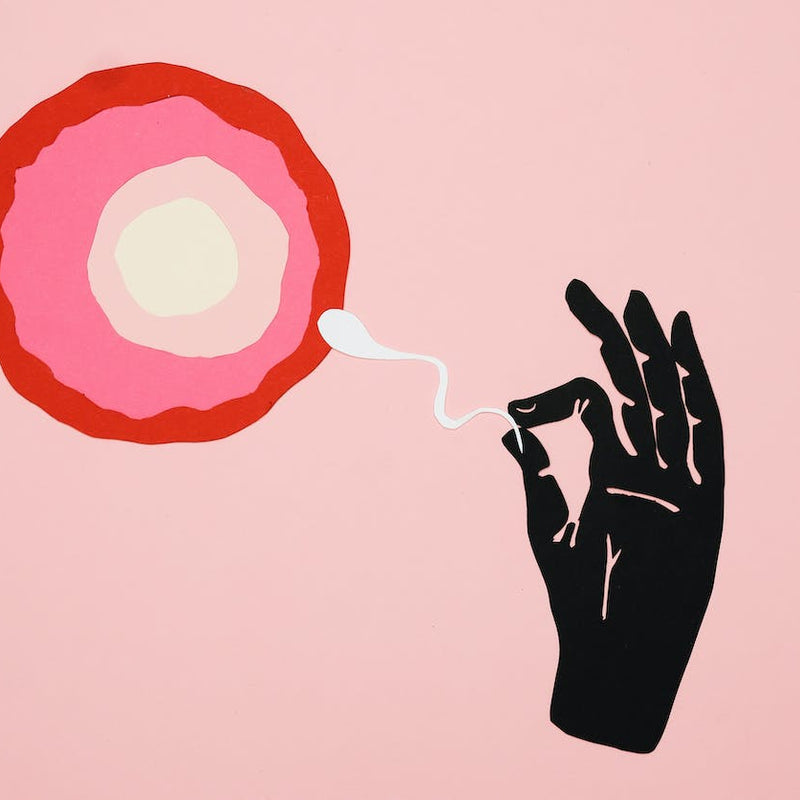Can Lube Cause a Urinary Tract Infection?

Worried that your personal lubricant might be causing a urinary tract infection? Read on to learn how to choose a non-irritating lube that's safe for your body.
By Dr. Kenosha Gleaton, OBGYN
Urinary tract infections are usually easy to treat, but can be very uncomfortable to manage. You may have already heard the basics for preventing a UTI: pee after sex, drink plenty of water, wipe front to back. Did you know your lube may also play a role in how susceptible you are to infections?
What is a urinary tract infection?
A urinary tract infection (UTI) is a bacterial infection of the bladder or urethra. In more severe cases, infection can travel to the kidneys. UTIs are one of the most common infections in females, occuring in up to 40% in the United States [1]. UTIs typically aren’t dangerous and will resolve fairly quickly to treatment. Common symptoms of a UTI include urinary frequency, urgency, pain when urinating, and blood in the urine. If a UTI progresses to a kidney infection, more severe symptoms such as back pain, nausea, and vomiting may occur [1].
What causes UTIs?
UTIs occur when bacteria enters the urinary tract. Sexual activity, improper hygiene, and structural problems are a few common causes. There are other risk factors associated with UTIs as well, including young or old age, pregnancy, use of spermicides, diaphragms, or catheters, and frequent pelvic exams [1-2].
How to prevent and treat UTIs
If you do have a UTI, it’s important that you stay hydrated and see a healthcare provider to ensure your infection doesn’t worsen or cause a kidney infection. UTIs sometimes resolve without treatment, although most will need some sort of antibiotic to help fight off the bacteria.
To prevent UTIs, try the following:
- Stay hydrated
- Urinate after sexual activity and whenever you have the urge to pee
- Wipe from front to back after using the restroom
- Avoid douching and the use of sprays, soaps, or powders around the genitals
Can lube cause a UTI?
Personal lubricants as a whole may not cause an infection, but certain ingredients have the potential to irritate the skin and may increase your risk of infection. There are many different types of lube, some containing ingredients you may want to avoid. Lube that has added spermicide, artificial scents or flavors, glycerin, and parabens may increase your chances of urinary tract infections, yeast infections, and STIs [3-4]. These ingredients may lead to an infection in a few different ways— either by altering the vaginal flora (the microbiome or “good” bacteria), altering vaginal pH, or causing damage or irritation of the skin, which leads to an increased risk of bacteria entering the body or urethra [3-4].
Can lube help prevent a UTI?
Alternatively, lube may prove helpful to some for preventing irritation and potentially infections such as UTIs. Vaginal dryness can increase the risk of infection, as being sexually active may lead to skin irritation [5]. Many turn to personal lubricants to help with vaginal dryness and reduce friction during sex. While there are some ingredients in lube you should avoid to protect fertility or vaginal health, a small amount of a good quality lubricant may make sex more pleasurable and decrease the risk of skin irritation or infections [5].
What to look for in a personal lubricant
There are a few things to think about when you’re shopping for a new lube. If you’re pregnant or hoping to conceive soon, you may want to look for fertility-friendly and pregnancy-safe lubricant. It’s also important to prioritize a lube that won’t harm vaginal health with harmful ingredients, high osmolality, or high pH levels. Osmolality is a fancy term that refers to how concentrated chemical particles are in a fluid. It’s recommended to look for a lubricant with osmolality below 1,200 mOsm/kg and pH levels 7 and below to prevent infection or damage [6-7]. While you should do your own research and talk to your healthcare provider about what kind of lube might be right for you, research does show that water-based lubricants are highly rated for increasing pleasure with little to no negative symptoms [8]. Read more about Lube and Vaginal Health and The pH of Lube.
Key takeaways
- A urinary tract infection is an infection of the urethra or bladder.
- UTIs are caused by bacteria entering the urinary tract and can be brought on by sexual activity, poor hygiene, structural problems, and more.
- Lube itself isn’t likely to cause a UTI, but some ingredients found in lubricants may increase the risk of an infection by irritating the skin or urethra, interfering with the natural vaginal microbiome, or altering pH.
- Lube may also be helpful for preventing infection or irritation caused by vaginal dryness.
- When shopping for lube, it’s recommended to use products with a pH of 7 or lower, water based, and free of glycerin, parabens, or artificial scents and flavors.
- To prevent a UTI, try to urinate after sex, drink plenty of water, wipe from front to back, and avoid douching or using products that can irritate the genitals.
References:
- Bono MJ, Leslie SW, Reygaert WC. Urinary Tract Infection. [Updated 2022 Nov 28]. In: StatPearls [Internet]. Treasure Island (FL): StatPearls Publishing; 2022 Jan-. Available from: https://www.ncbi.nlm.nih.gov/books/NBK470195/
- Urinary Tract Infection. Centers for Disease Control and Prevention. Reviewed October 2021. Accessed March 2023. URL.
- Nicole W. A question for women's health: chemicals in feminine hygiene products and personal lubricants. Environ Health Perspect. 2014;122(3):A70-A75. doi:10.1289/ehp.122-A70
- Wilkinson EM, Łaniewski P, Herbst-Kralovetz MM, Brotman RM. Personal and Clinical Vaginal Lubricants: Impact on Local Vaginal Microenvironment and Implications for Epithelial Cell Host Response and Barrier Function. J Infect Dis. 2019;220(12):2009-2018. doi:10.1093/infdis/jiz412
- Goncharenko V, Bubnov R, Polivka J Jr, et al. Vaginal dryness: individualised patient profiles, risks and mitigating measures. EPMA J. 2019;10(1):73-79. Published 2019 Mar 2. doi:10.1007/s13167-019-00164-3
- Use and procurement of additional lubricants for male and female condoms WHO/UNFPA/FHI360. World Health Organization. April 2011. URL.
- Miller EA, Beasley DE, Dunn RR, Archie EA. Lactobacilli Dominance and Vaginal pH: Why Is the Human Vaginal Microbiome Unique?. Front Microbiol. 2016;7:1936. Published 2016 Dec 8. doi:10.3389/fmicb.2016.01936
- Herbenick D, Reece M, Hensel D, Sanders S, Jozkowski K, Fortenberry JD. Association of lubricant use with women's sexual pleasure, sexual satisfaction, and genital symptoms: a prospective daily diary study. J Sex Med. 2011;8(1):202-212. doi:10.1111/j.1743-6109.2010.02067.x
Reach Out, We're Here
Have questions about your order or products? For the speediest answer, check out our FAQ section. Need something else? Come find us below.
Please keep in mind our regular business hours; Monday-Friday, 9am-5pm CT.
Customer Support
support@natalist.com
Press Inquiries
media@everlyhealth.com
Business & Partnerships
team@natalist.com
Affiliates + Influencers
team@natalist.com
Job Openings
Careers Page























